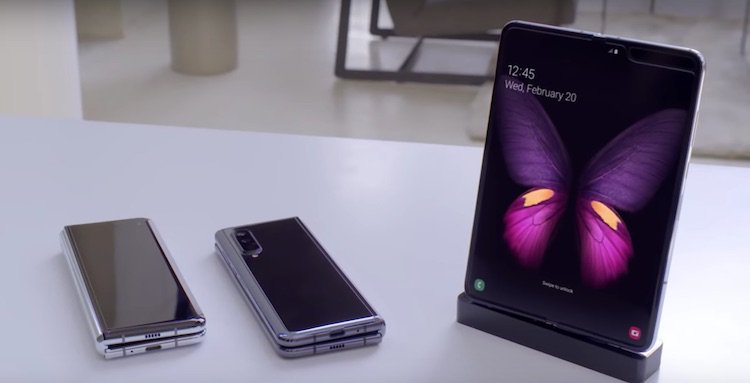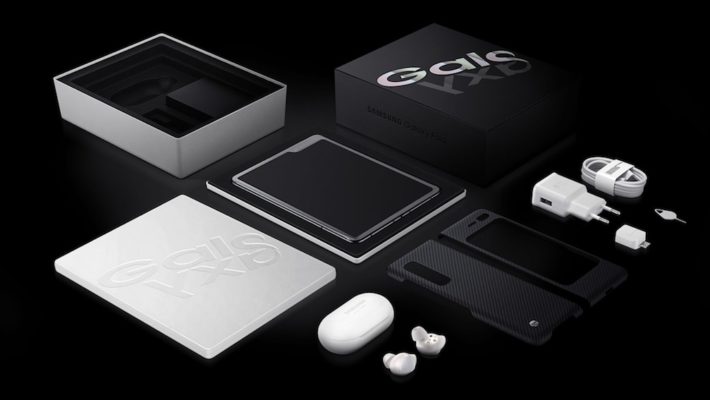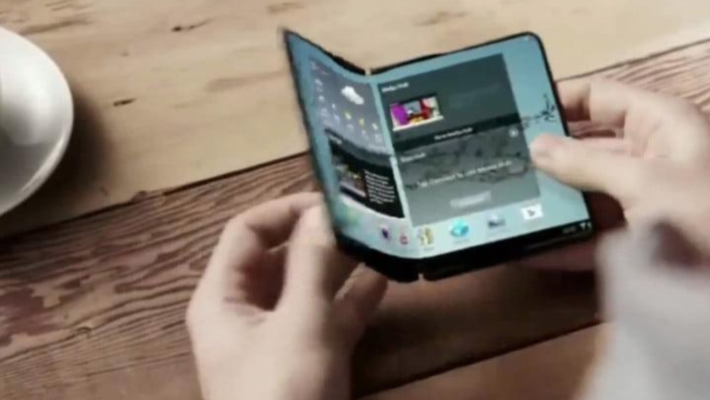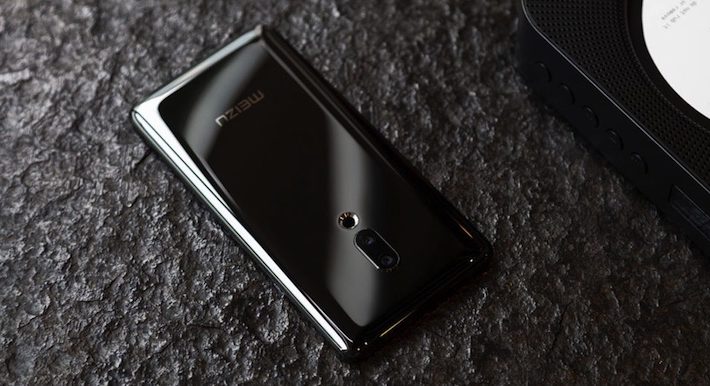Though the Samsung Galaxy Fold is official and scheduled for release at the end of April, there is a lot about the device that remains under wraps, especially how it will hold up through day to day use.
Outside of highly curated marketing clips, there hasn’t been much word on what the average user can expect from the Galaxy Fold. However, a video has surfaced, showing the foldable in a seemingly unstaged environment. The most prominent detail is the visible seam that has formed where the device bends inward.
There is no word on how long this Galaxy Fold model has been used, but the video reveals one of the glaring concerns about foldable devices in general. Many may wonder if constant folding could damage the display of such a unique device but the verdict remains up in the air. While the crease looks prominent against a black screen, some commentators have noted that the bend is less noticeable on a lighter or more colorful background. The crease is virtually invisible when the user in the video navigates to the white background of the Galaxy Fold settings.
Samsung getting ahead of issues
Samsung is already working to minimize the creasing issue on the Galaxy Fold ahead of its release. The manufacturer may offer users free screen replacements without having to sign up for insurance; however, there are no details on whether these replacements would fall under any kind of limited warranty. Even so, displays are among the most delicate components on a smartphone regardless of its form factor and concerns about the long term viability of the Galaxy Fold screen are valid.
Samsung claims that with several layers of polymer and adhesive to secure the integrity of the screen, the display on the Galaxy Fold will be able to withstand hundreds of thousands of bends. Sill, potential damage due to a deepening crease could include dead pixels and bleeding of colors. These are common results to trauma on flat and rigid displays. Recent drop tests rendered the Galaxy S10e non-functional after a single six-foot fall. There really is no telling what malfunctions could arise on a first generation foldable product.
Samsung already has two more foldable smartphones in the works with at least one handset featuring an outward fold, similar to the Huawei Mate X. Samsung is also working with Corning to develop an ultra-thin Gorilla Glass protective cover for future foldable devices. This is a positive preemptive move, considering the Huawei Mate X has screen pinching issues of its own.
Samsung’s flexible display history
While the Galaxy Fold is admittedly a stepping stone to further advancements in mobile displays, critique of its design and function is necessary for the development of this new form factor. We saw a similar trajectory for Samsung’s curved display devices when they first released. The inward curving Samsung Galaxy Round is a mere footnote in the curved display story. Unlike the Galaxy Fold, that device did not have availability in major markets like the U.S., Canada, and Europe.
When the Galaxy Edge devices first released their curved displays were marketed as a functional feature — a call to action to swipe the edge of the screen to bring up additional software options. However, there was never any practical need for the Edge UI. Additionally, users quickly found that curved edges were weak points that made Samsung devices more susceptible to immediate damage if dropped.
Over the years, the Edge display has been relegated as a design feature and Samsung itself continuously minimizes the depth of the curves on its devices. No-one would say that the Edge display was a failed endeavor, but its market result is clearly much different from its original intended use. Results of this experimentation are apparent on the Galaxy Fold, with Samsung’s new One UI optimized for foldable devices as opposed to being an add-on software component to the interface for static devices.




